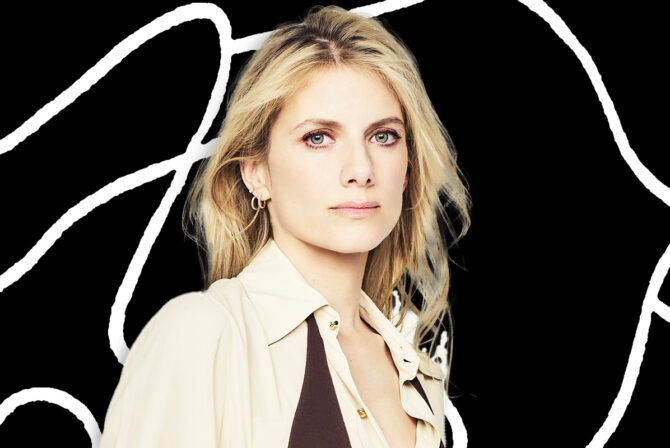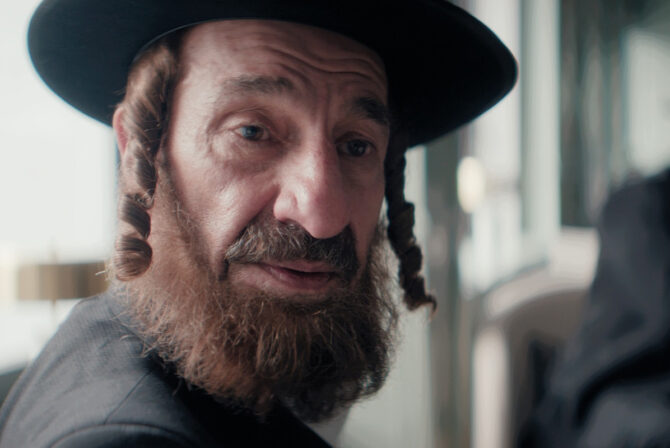The year I turned 13, I attended 13 bar mitzvahs. Sometimes two in one day. No bat mitzvahs. Girls didn’t have a lot of those back then.
As for my family, both my parents were Jewish and we lived in a Long Island town where the school population was 85% Jewish, but we didn’t even belong to a temple. When I was 5, I somehow learned (certainly not from my parents) about the concept of God. I told my parents I’d been praying. They laughed.
I heard that God had immense power and cared deeply about how humans behaved. I saw that this could work to my advantage. Contentedly arranging my dolls in their little beds, I might answer my mother’s repeated calls with, “God doesn’t want me to take a bath.”
This did not make my parents laugh.
But when it came to culture, my mother and my four Jewish grandparents, who’d managed to say good riddance to “the old country” and settle in Brooklyn and Manhattan, all identified wholeheartedly as Jews. A big part of this cultural identity was sprinkling their conversations with Yiddish words.
Throughout my childhood I loved when they used exotic-sounding, throaty expressions that made English sound bland by comparison.
Many of my grandparents’ Yiddish expressions made me feel warm all over.
Like when my paternal grandfather called me shayna maideleh (pretty little girl).
And when my paternal grandma kissed my forehead and said, “A gezundt auf dine kepilah” (good health to your little head).
When my maternal grandma gazed at me lovingly and called me a little mamzer, I didn’t find out until I was a teenager that this actually means “little bastard,” but I chose to believe she meant the second definition, “little rascal.”
If my maternal grandfather refused to do something my mother wanted him to do, she accused him of being a stubborn alter kaker (old man, but literally, old defecater).
To my glee, he (my hero) responded, “That’s Mr. Alter Kaker to you.”
My love of Yiddish and my grandparents inspired my latest children’s picture book, “Gracie Brings Back Bubbe’s Smile,” about a little girl and her grandma who are mourning the death of Zayde. When young Gracie asks Bubbe to teach her some Yiddish words, Bubbe gradually reengages with life, and the loving pair finds joy and even laughter.
In my family, the most laughter-inducing expressions were my mother’s, especially when she reported on her dinner parties. Her encouragement of guests to help themselves to seconds of pot roast bordered on bullying, i.e., “That’s all you’re taking? You call that a portion?”
But after everyone left and she discovered there weren’t enough leftovers to constitute our next night’s dinner, she remarked, “They ate like chazzers!” (pigs).
The poor guests couldn’t win.
If I complained of boredom, my mother said, “Shlog deyn kop en vant!” (hit your head against the wall). How could I not smile at the absurdity of this solution?
If I expressed my fear of possible humiliation, say the night before an oral report, her attempt at consolation was, “So? Let them call you pisher!” (little squirt).
When it was time to meet my future in-laws, I was nervous, of course. But I soon discovered that my future mother-in-law was a rich source of Yiddish herself. Her introducing me to countless colorful expressions was fun for both of us and brought us closer. One of my favorites was, “She needed that like a loch in kop!” (hole in the head).
Fast forward a few years, and I got to pass on Yiddish to the next generation. I loved when my daughter and son creatively twisted Yiddish like pretzels into our dialogues. Availing herself of a sample, my daughter announced, “I schnorred (begged) some teriyaki chicken!”
When my poor sense of direction got us lost en route to a playground and we ended up at a more fun one, my son piped up from the back seat, “We farblunje-ed (got lost) our way to stardom!”
As I reached my long-awaited status of expectant grandmother, friends and relatives regaled me with predictions of the pleasures to come. I listened, I nodded, I said I couldn’t wait… but when the baby came, I was wholly unprepared for the awe I felt.
Seeing, hearing, holding, smelling this tiny being and the three more in years to come, witnessing my children, my babies, be loving, competent parents! No words could capture the wonderfulness of all this. No English words, that is. But Yiddish words could. Holding each grandchild was a shear machaya (pleasure, deliciousness). Watching my son and daughter gently give their newborns a sponge bath I was verklempt (choked up with emotion).
And these days when my children text me photos (3-year-old granddaughter dancing), responding “Cute!” doesn’t suffice. A hug emoji or love tapback couldn’t either. No, if it’s an especially endearing photo, I respond, “I’m plotzing!” (exploding or collapsing). And my children text back, “We knew you’d say that.”
After I distributed author copies of “Gracie Brings Back Bubbe’s Smile,” my 3-year-old granddaughter, in the middle of doing a puzzle, surprised me with lines she’d memorized from the book, “Kvetch kvetch kvetch. That sounds like complaining.” How I kvelled (swelled with pride)!
And when my 6-year-old grandson FaceTimed me to say, “Mazel tov, Grammy! I was going to call you before, but I was noshing on an apple,” well, you can just imagine how I kvelled from that!
Yiddish has been the super glue that bonded me with my grandparents, my parents, my in-laws, my children… all the way to my grandchildren.
From these colorful, apt expressions, five generations of my family have shepped naches (derived joy).








